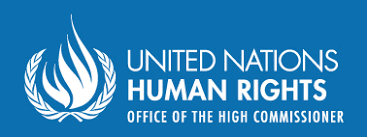The Commission on Human Rights in South Sudan says perpetrators of serious crimes in South Sudan ‘could face justice in courts around the world’ as violence continues in parts of the country.
While presenting a 200-page report to the UN Human Rights Council on Tuesday, the commission’s chair Yasmin Sooka said they have identified 23 individuals who bear the greatest responsibility for crimes committed in South Sudan over the past year.
“We have framed these crimes in multiple ways to allow future prosecutions to take place in jurisdictions inside and outside South Sudan,” she said.
“This allows for the prosecution of war crimes and crimes against humanity in states that are parties to relevant treaties on torture, enforced disappearance and attacks on UN personnel, for example,” Sooka added.
The report notes that the situation in part of Equatoria region remain extremely volatile as fighting continues in Yei River State between government forces and forces loyal to the National Salvation Front (NAS) who rejected the September peace deal.
According to the report focusing on incidents between May and June 2018 in Unity State, Western Bahr el Ghazal, and Central Equatoria State, the commission found that the incidents committed by both government and opposition forces may amount to serious human rights violations.
The crimes documented include sexual violence, sexual slavery, abductions, forced marriage, forced pregnancy, forced abortion, and mutilation of sexual organs as well as killings.
“It has become commonplace to say that these crimes take place because impunity has become entrenched. But that impunity cannot be allowed to continue,” the commission chair noted.
Arbitrary arrests
The UN report also notes that an increase in arbitrary detentions, torture, executions and enforced disappearances generating paranoia and fear in South Sudan, with civil society activists reporting they felt afraid to speak out.
It also documented cases where prisoners had been held in shipping containers with no fresh air or toilets and witnesses describing torture, including beating and whipping, pulling out of toenails, cutting, burning and electrocution.
Humanitarian situation
The commissioner also found that despite the signing of the Revitalized Peace Agreement, the humanitarian situation on the ground did not change.
The report noted that 60 percent of the South Sudanese population is severely food insecure, 2.2 million refugees and 1.9 million Internally Displaced Persons largely due to the ongoing conflict.
The humanitarian situation is exacerbated by the deliberate obstruction of the work of humanitarian actors, the report said.
Transitional justice mechanisms
The report also noted with concern the lack of progress in establishing the Transitional Justice mechanisms adopted in the 2015 Peace Agreement and the September 2018 deal.
A member of the commission Barney Afako said the mechanisms are essential “for dealing with the past, preventing fresh violations, ensuring accountability and constructing a cohesive society.”
They called on the South Sudan government to establish Truth, Reconciliation and Healing commission and the Compensation and Reparation Authority, and on both South Sudan and the AU to establish the Hybrid Court for South Sudan.
But Commission member Andrew Clapham warned perpetrators of these crimes saying the delay does not mean they will not be prosecuted.
“Despite these delays in the establishment of justice mechanisms within South Sudan, perpetrators of violent crimes in South Sudan should not think they can escape justice, as they could be prosecuted in international courts or domestic courts in other countries,” Clapham stressed.
The commission chair Ms. Sooka called on the region and the wider international community to invest politically and materially in the Transitional Justice mechanisms in South Sudan saying they are essential for building sustainable peace.




